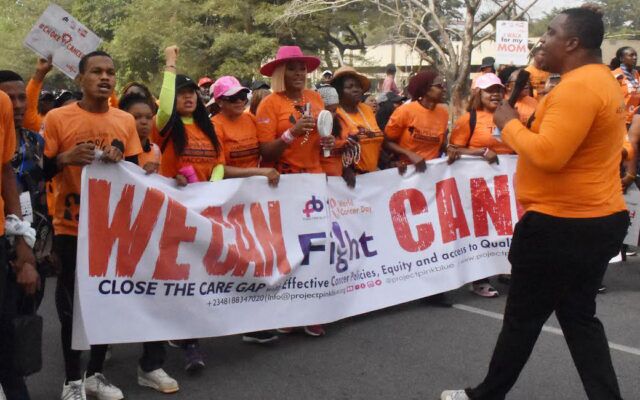On World Cancer Day, the dire situation of cancer care in Nigeria became an issue of concern, heightened by the exorbitant treatment costs leading to an annual death toll of 78,899.
Statistics reveal that about 124,815 Nigerians are diagnosed with cancer each year, but due to the lack of affordable care, a large portion succumbs to the disease.
The financial burden on individuals seeking treatment is substantial, ranging from N10 million to N30 million per patient, making it a luxury beyond the means of many in a country where over 80 million people are considered multidimensionally poor.
Early detection and treatment are emphasized as key factors in improving outcomes, as over 40 percent of cancers can be prevented, and an additional 40 percent can be cured with timely intervention.
The National Cancer Control Programme (NCCP) of the Federal Ministry of Health and Social Welfare, along with other organizations, has been working to address the issue. The National Health Insurance Authority (NHIA) covers some levels of cancer treatment, and collaborations with NICRAT aim to expand coverage further.
The unveiling of the National Institute for Cancer Research and Treatment (NICRAT) in July 2023 marked a significant step by the Federal Government to combat cancer and advance oncology in Nigeria. The NICRAT Act of 2017 established this institution with the mandate to provide national leadership in cancer research, treatment, and control.
Prof. Isaac Adewole, a consultant to NCCP/NICRAT, highlighted that breast, cervix, prostate, and liver are the most common types of cancer in Nigeria, contributing to the estimated 78,899 annual deaths. Adewole stressed that late presentation to hospitals for treatment and the absence of effective services are major contributors to the rising cancer morbidity and mortality rates.
The cost of cancer treatment in Nigeria is substantial, with Adewole stating that it can reach nearly N30 million per patient. Women requiring breast cancer treatment may face costs ranging from N2.1 million to N29.2 million, covering stages of diagnosis, chemotherapy, surgeries, and radiotherapy.
While some cancer treatments are covered by NHIA, an evaluation in October 2020 revealed that cancer care is not explicitly listed as part of the benefits package. The need for increased awareness, reduced exposure to risk factors, and support for healthy lifestyles is emphasized.
Researchers predict a potential doubling of cancer cases and deaths in Africa by 2040, highlighting the urgent need for strengthened national policies, awareness, and international collaboration to address the growing cancer burden.



